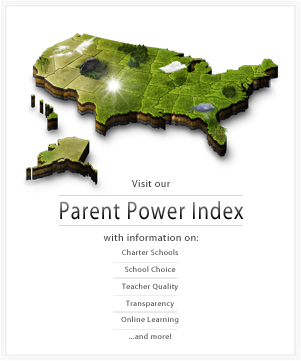Two NCLB Rewrite Bills Approved
The U.S. House Committee on Education and the Workforce passed 2 bills, the Student Success Act and the Encouraging Innovation and Effective Teachers Act, part of a package intended to overhaul No Child Left Behind. These 2 bills were introduced by Chairman Kline in hopes of enhancing school accountability, improving flexibility, and supporting effective teachers. The legislation awaits a vote from the full House.
So how do these bills relate to No Child Left Behind?
The Student Success Act (HR 3989) eliminates federally mandated NCLB interventions for failing schools and replaces Adequate Yearly Progress (AYP) with state-determined accountability systems. It does, however, maintain that states and districts release annual report cards with disaggregated data, meaning subgroup accountability doesn’t fall by the wayside. “Maintenance of effort” requirements that stipulate that districts will forfeit federal funding if their expenditures are less than 90% of the previous year’s expenditures is also wiped out according to this act. One can only hope this means the practice of spending frivolously just to reach certain levels will slow down, if not end. Finally, HR 3989 also eliminates “highly qualified teacher” requirements. Effective teachers make a tremendous difference in students’ lives, but the means by which “highly qualified teachers” were identified and distinguished, along with mandating they appear in classrooms, is why this measure failed to live up to original expectations. Not to mention the increased scrutiny on teacher preparation programs and colleges of education for failing to prepare teachers as best they should.
Perhaps it is because of this that the Encouraging Innovation and Effective Teachers Act (HR 3990) shifts focus to how teachers are doing in the classroom. HR 3990 requires teacher evaluation systems to be locally developed and implemented to include student achievement, incorporate multiple factors, and include feedback from all stakeholders. It suggests states and districts pursue value-added evaluation systems, meaning teachers are evaluated based on students’ learning gains rather than cut scores. Perhaps more to do with the “encouraging innovation” aspect of the Encouraging Innovation and Effective Teachers Act, numerous existing K-12 funding streams would be consolidated into a Local Academic Flexible Grant (LAFG). LAFG provides funding to states and districts to support policies that promote achievement. 10% of LAFG funds are reserved for programs outside of traditional public school systems, like tutoring or scholarship programs.
Whether these bills will get the support they need to revamp the contested federal education policy, however, remains a big question mark thanks to a partisan divide on what rewrite legislation should look like.











